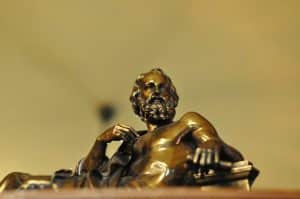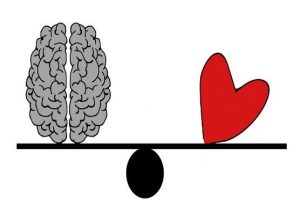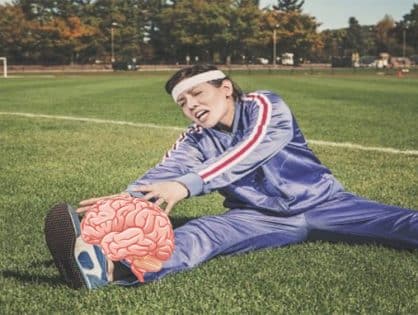Recent studies indicate that the brain benefits from exercise. We all know we need to exercise! And we all know that there are physical health benefits from exercising. But did you know that exercise will help you in the classroom and while studying, as well? While reading Spark: The Revolutionary New Science of Exercise and the Brain, written by Harvard professor John Ratey, M.D., I discovered that modern science is confirming what the ancients understood thousands of years ago. Dr. Ratey begins by quoting from Plato’s Republic:
 In order for man to succeed in life, God provided him with two means, education and physical activity. Not separately, one for the soul and the other for the body, but for the two together. With these two means, man can attain perfection.
In order for man to succeed in life, God provided him with two means, education and physical activity. Not separately, one for the soul and the other for the body, but for the two together. With these two means, man can attain perfection.
-Plato, Republic, Book 3, 411e
Dr. Ratey makes the startling claim that exercise has the primary effect of improving brain function, and secondarily, cardio vascular and muscle improvement. In one long-running experiment at an Illinois high school, physical fitness was incorporated into the curriculum. The result was a 17% increase in reading and comprehension. Do you know how many teachers would kill to see that kind of improvement?! At the same high school, students took an international math and science test, in which the Asian countries typically outperform the rest of the world. The students at this American high school came in first place for science and sixth place for math, in the entire world. Not bad for a world-wide competition! This and many other studies demonstrate a strong connection between physical fitness and academic achievement.
Additional Benefits
In addition to academic achievement, studies have found other beneficial results. People who exercise can lower depression, reduce violence, and help increase focus for those with attention disorders. (Researchers in this article state, “Health experts often remark that if exercise came in pill form it would be the most sought-after drug on the market.”) For example, one inner city school that added a physical fitness component to their curriculum saw a significant decrease in fighting. By the way, these studies have been replicated at schools in more financially stable neighborhoods as well as disadvantaged neighborhoods. In other words, regardless of your socio-economic condition or current class standing, you should see an improvement in your academic results by incorporating exercise into your routine.
What You Can Do
 So what can you do to achieve some of these results? First, you need to get your heart rate up to 80-90% of its potential based on your age group. You can check this heart rate calculator to help you determine what is right for you, keeping in mind that you should discuss this with your doctor before embarking on a new physical exercise routine.
So what can you do to achieve some of these results? First, you need to get your heart rate up to 80-90% of its potential based on your age group. You can check this heart rate calculator to help you determine what is right for you, keeping in mind that you should discuss this with your doctor before embarking on a new physical exercise routine.
Second, doing exercise in the morning has a positive effect on your learning all day long.
Third, for maximum effect, work on your most difficult material right after you exercise. Time is of the essence here, so bring something with you and read it before you shower. The longer you wait after exercising to study, the less effective it will be.
Fourth, more complex exercise provides even more benefits than something like running. I suppose if you can find someone to do ballroom dancing with in the morning, that would be the most effective. Though, I’m not sure how many of us want to get up at 6 am to do the salsa or tango!
Finding Time
Now, some of you are thinking, sounds great, but I just don’t have time to exercise. So here’s my question to you: with a potential 20% increase in your scores, do you really have the time to NOT exercise? You will also find that exercise can help break mental roadblocks.
My recommendation is to start easy and at times that work with your schedule. Early morning may not work for you so try afternoon or evening. Going to the gym every day may be ambitious at the beginning, so start with exercising two days a week. The key is just to start and then gradually make it a habit. Also, make sure to study your most challenging material right after your workout for maximum learning. Also, check out this video on how to get through challenging material for even more ideas.


